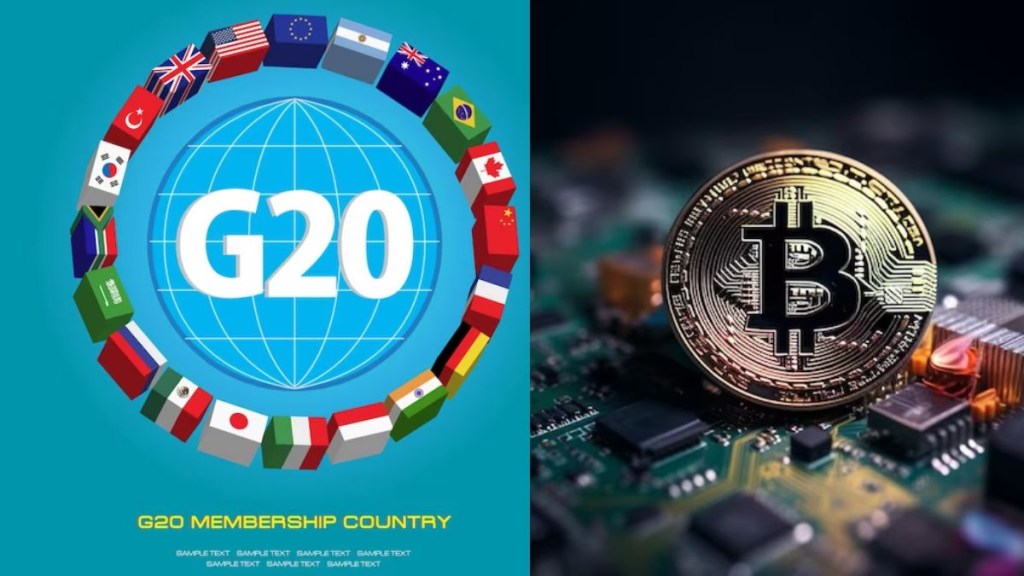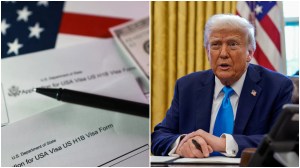By Priyansh Verma
The G20 New Delhi Leader’s Declaration endorsed the FSB’s high-level recommendations for the regulation, supervision and oversight of crypto-assets activities and markets and of global stablecoin arrangements, and “welcomed” the blueprint presented by IMF-FSB synthesis paper for the same purpose. The IMF-FSB paper cautioned against blanket bans on crypto assets and recommended targeted restrictions and sound monetary policies. While raising concerns about the potential impact of cryptocurrencies on nations’ monetary policies, the paper suggested licensing crypto service providers and called for countries to implement the Financial Action Task Force’s (FATF) anti-money laundering and counter-terrorist financing (AML/CFT) standards in the sector.
The collective recommendations provide comprehensive guidance to help authorities address the macroeconomic and financial stability risks posed by crypto-asset activities and markets, including those associated with stablecoins and those conducted through so-called decentralised finance (DeFi).While a synthesis paper by the IMF and G20 Financial Stability Board (FSB) highlighted the need to address data gaps with respect to crypto-assets, the local industry has pitched for the creation a national registry based on blockchain to store data related to crypto assets.
The IMF-FSB paper recommended developing a common framework and collect ‘test data’ on digital money and crypto-assets used as a means of payment enabled by Fintech firms. Its implementation will be overseen by the IMF, Bank for International Settlements (BIS), European Central Bank (ECB), and FSB. “The expected outcome is to have, by Q4 2025 (October-December 2025), test estimates of flows and stocks of crypto-assets used as means of payments broken down by type, sector, and counterpart country,” the paper said. “If the data is available on the national registry, tracing will be easy, and its authenticity will be known. It’s easy to do it,” Raj Kapoor, founder, India Blockchain Alliance told FE. India, which is calling for a set of common regulating framework for crypto-assets at the G20, has earlier stressed the need to have data on crypto before putting in place any laws to regulate them.
The IMF-FSB paper highlighted that the growing presence of new forms of crypto-assets, used as a means of payment, poses various challenges for data collection and analysis such as cross-border usage and currency substitution, which subsequently can have an impact on the monetary independence and financial stability of economies. “Yet, the data to measure crypto-assets, and their impact are scarce,” the paper said.”We have about 20 crore crypto users in India, on paper. The data of the users, about assets they hold, is available with the exchanges. Most of the exchanges are not registered in India, and they are not obligated to share the data with the government unless directly asked. But this data needs to move to a national registry, which is not available at this moment,” Kapoor said, while adding the data on national registry should be linked to Aadhar.
” If you put your data on a blockchain, it becomes a hash (#), you’ll have your private data, and only when you wish to share your data, you can. I suggest, India should do a pilot project in a state and see how it works, it’s much doable.” The concerns regarding lack of data on crypto-assets have been repeatedly raised by the Reserve Bank of India. “There is no data to justify how many investors have invested in these instruments (crypto-assets) and what is the amount of investment. Data informally gathered in November seems to indicate that crypto investments by Indians is nowhere near to being significant, although the pace of growth could make it a concern in future,” T Rabi Sankar, deputy governor,RBI’s, said, at the Indian Banks Association conference, in February.
At the Global Fintech Fest on Tuesday, Finance Minister Nirmala Sitharaman had called for setting up a framework for handling challenges related to crypto assets.”India’s Presidency has put on table in the G20 issues related to regulating or understanding that there should be a framework for handling issues related to crypto assets,” Sitharaman had said. “Crypto (is a) threat as well as an opportunity. But crypto is also an example to say how unless global cooperation works out well, you are not going to be able to have a responsible financial ecosystem which can regulate it as well.” Crypto assets have been in existence for more than a decade and have displayed significant volatility. Emerging in January 2009, shortly after the Global Financial Crisis, the value of crypto-assets has fluctuated dramatically with many episodes of sharp appreciation and subsequent steep price reversions. For example, in 2021, the total market value of crypto-assets grew 3.5-fold, and in the crypto-asset market turmoil that started in May 2022, the total market value shrank from a peak of $2.6 trillion to below $1 trillion.








